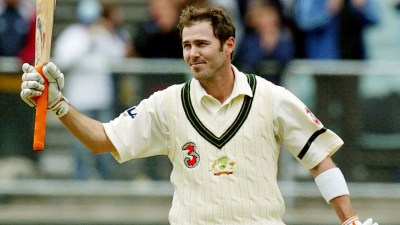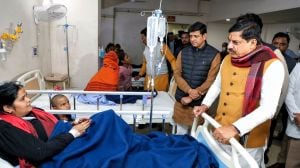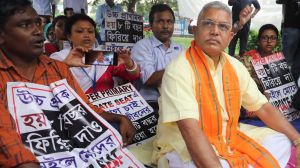It146;s not judicious, General
The dramatic and unprecedented 8220;suspension8221; of Pakistan8217;s Chief Justice Iftikhar Muhammad Chaudhary by the General Pervez Musharraf on March 9 has a touch of irony and tactical flourish to it.

The dramatic and unprecedented 8220;suspension8221; of Pakistan8217;s Chief Justice Iftikhar Muhammad Chaudhary by the General Pervez Musharraf on March 9 has a touch of irony and tactical flourish to it. A little over six years ago in October 1999, a seemingly confident Pakistani prime minister, Nawaz Sharif, dared to 8220;sack8221; his army chief 8212; General Pervez Musharraf 8212; and the script went off in an entirely unexpected direction as Pakistan now knows. By 8220;suspending8221; a CJ, has set off a chain reaction?
With protests gathering popularity, the astute general has already tried to make amends by hinting at a much deeper conspiracy afoot to unseat him and sabotage his sincere efforts to salvage Pakistan from internal violence. More cynical observers have averred that this move to suspend the CJ may have stemmed from the fact that the worthy judge was proving to be too 8220;independent8221; and may not have acquiesced in the Musharraf intent to extend his presidency with devious legal dexterity. It may be recalled that last June, the Pakistan Supreme Court exhibited its first signs of judicial autonomy when it rejected a government move, ostensibly supported by PM Shaukat Aziz, to sell 75 per cent of the state-owned Pakistan Steel Mills to a Saudi-Russian-Pakistani consortium. Over the intervening period, till the current 8220;suspension8221;, the military leadership was increasingly uncomfortable with a spate of court rulings that ranged from seeking accountability for 8216;disappeared8217; persons to taking the executive to task for various transgressions.
Has the otherwise astute General Musharraf bitten off more than he can chew? One op-ed piece in the feisty Daily Times Lahore, March 18 noted wryly of the CJ conundrum: 8220;8230;the Government of Pakistan, is traditionally given to shooting itself in the foot; as regularly as that, it also puts the injured foot in its mouth. But the Great Leader Musharraf has to do something different, more in line with the panache he always displays. So, he seems to have decided to shoot himself in the head.8221;
The moot question is: has he? And if yes, how will this affect the internal power dynamics in Pakistan and by extension, what implications does this have for India?
Over the last six decades the military has gradually subsumed the state itself and the attendant levers of power. Beginning with Field Marshal Ayub Khan and later with General Zia, who began the gradual process of Islamising his rule, the military has not only emerged as the principal power centre but has also struck a Faustian bargain with right-wing extremist groups. Covert and overt support to religious zealotry and jihadi violence has been the leit-motif and integral to the military GHQ8217;s external policies. By extension, both Afghanistan and India have been differently identified over the last 25 years to gain strategic depth and inflict strategic bleeding, respectively. And Musharraf has been a prominent player in this larger Pakistani strategy right since his days as an ambitious, assertive brigadier to his 1999 Kargil adventure as a four-star general.
In the last seven years of his rule, he has consolidated the power of the military in the country8217;s internal structure but must be given due credit for steering the ship of state with a great efficiency in the post 9/11 turbulence. His fine balance of running with the US hound in prosecuting the GWOT, even while providing slack to the jihadi hare seemed to be successful 8212; till the recent Dick Cheney visit. In the last month, the deteriorating security situation on the Pak-Afghan border and the ire in Washington over Pakistan8217;s duplicity have come to a boil. Consequently, the US pressure on Pakistan to do more in apprehending various terrorist groups and known leaders is increasing.
In the final analysis, the manner in which Musharraf extricates himself from the current morass will depend to a large extent on the US stance in the matter. Even in the past, when Pakistan went through a similar cathartic crisis 8212; for instance the hanging of Zulfiqar Ali Bhutto by General Zia 8212; it was US support to the Pakistani military that swung the balance. From the US perspective, supporting the Pakistani military has been an article of faith and if the immediate tactical priority was the Soviet-Afghan war in the Zia years, it is the Osama bin Laden/Al-Qaeda combine now in the Musharraf reign.
If US policy continues to prioritise the short-term tactical objective over the more normative long-term strategic objective that reflects US values 8212; democracy, for instance 8212; then the current CJ conundrum will in all probability be swept under the carpet after the usual rhetorical flourish. In the event, the basic power grid of Pakistan will remain unaltered, and the relationship with India will be constrained within the existing glass ceiling, notwithstanding the cosmetics that we will witness in the run-up to the April SAARC summit. India8217;s long-term policies must be guided by an objective assessment of this central element of the Musharraf-Chief Justice impasse.
The writer is a defence analyst
- 01
- 02
- 03
- 04
- 05































